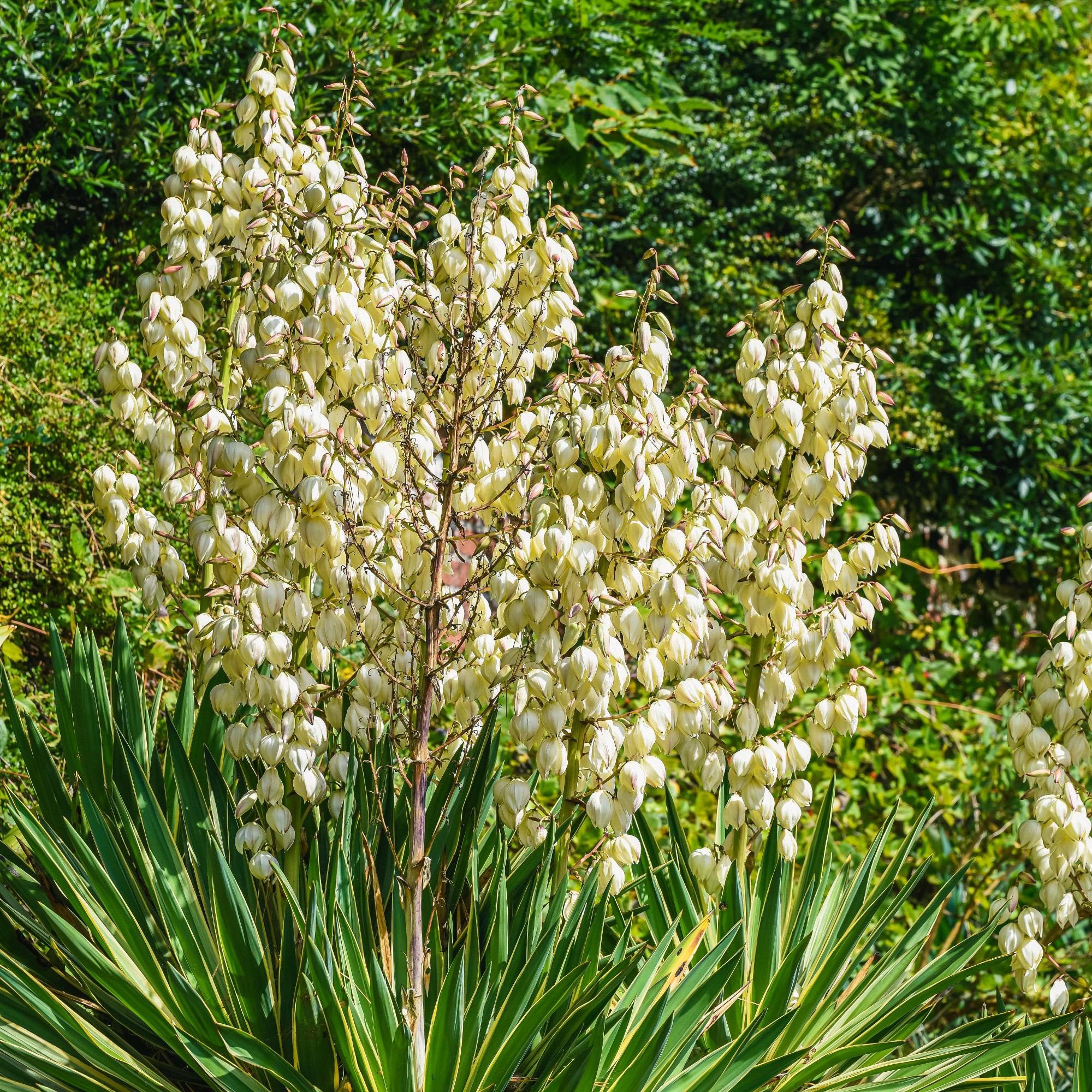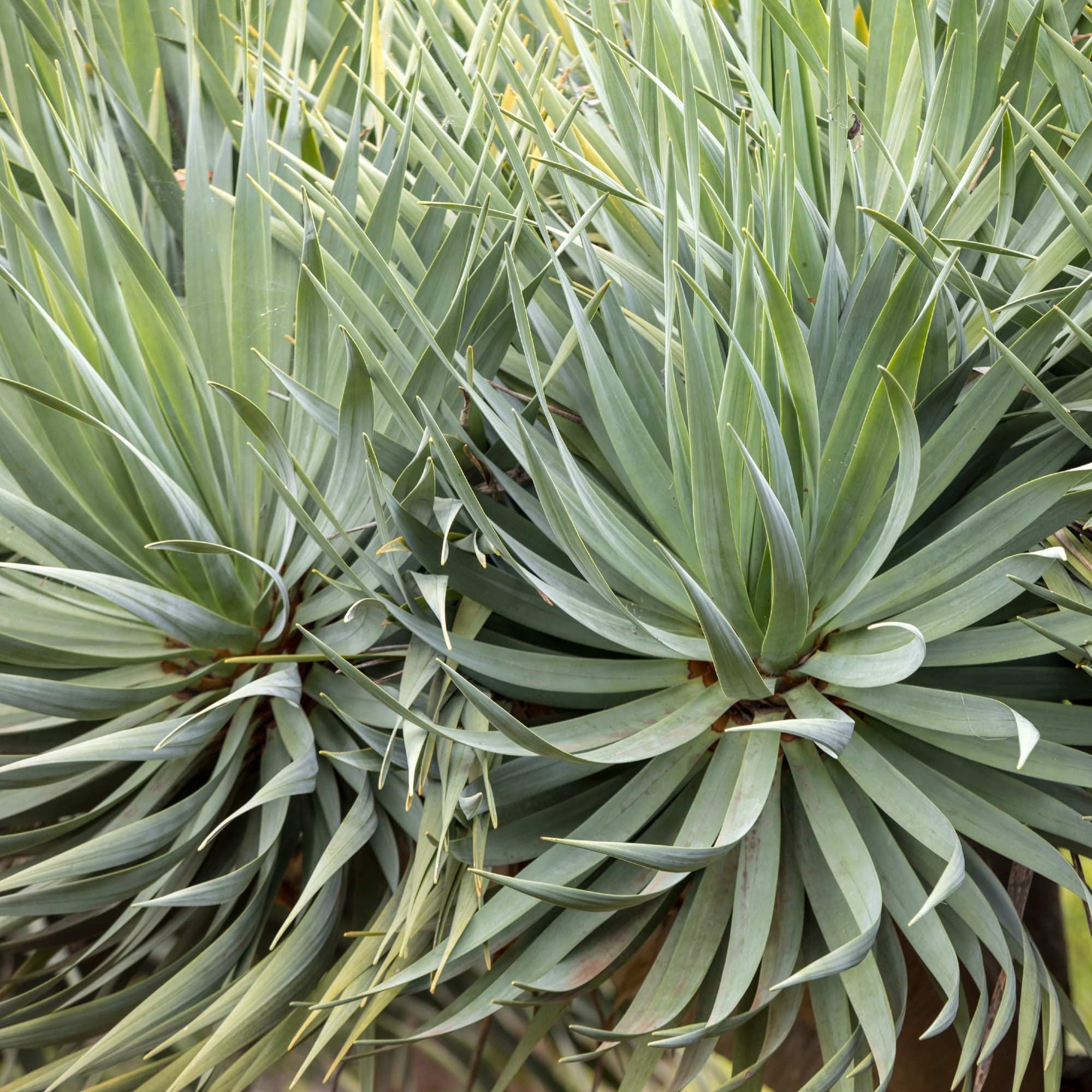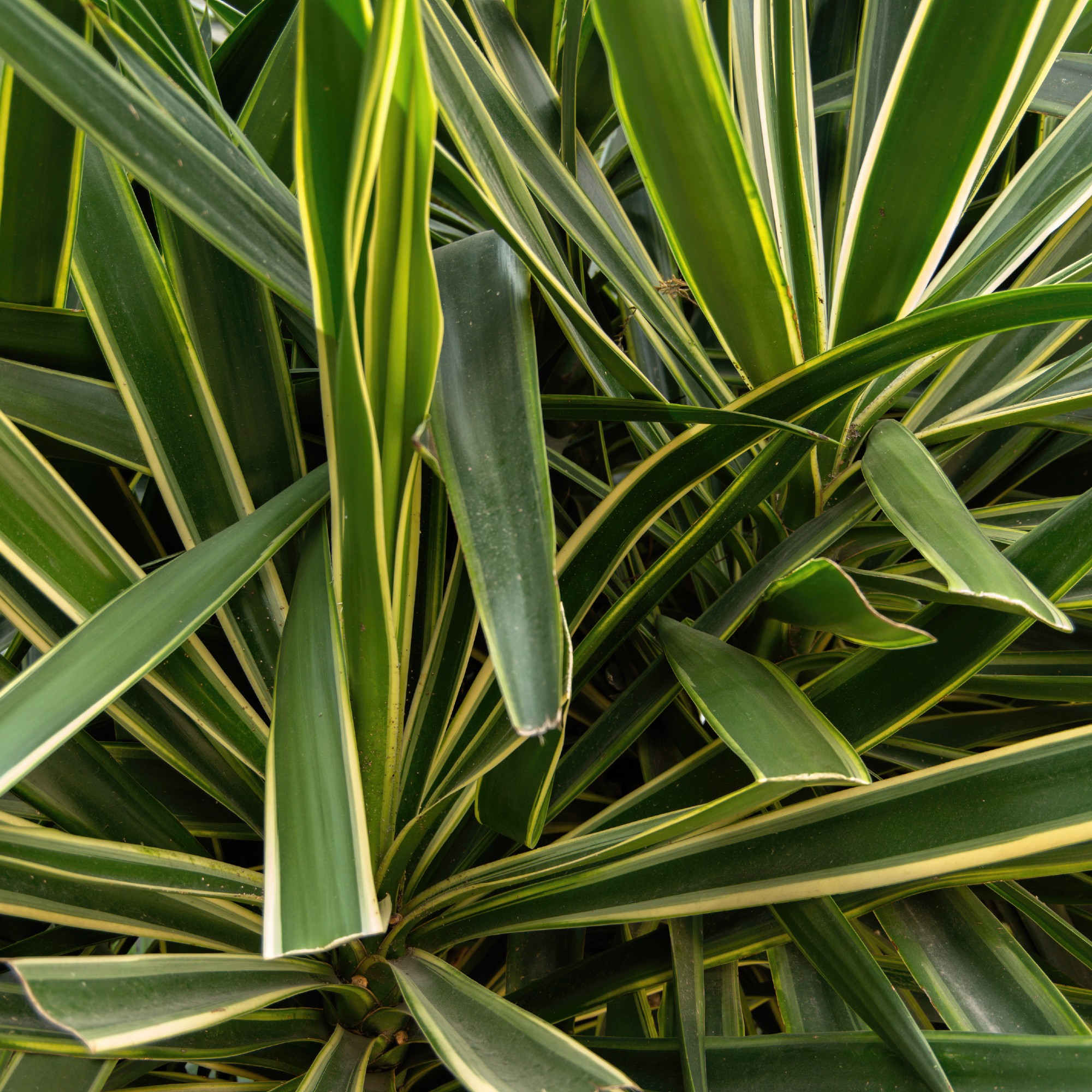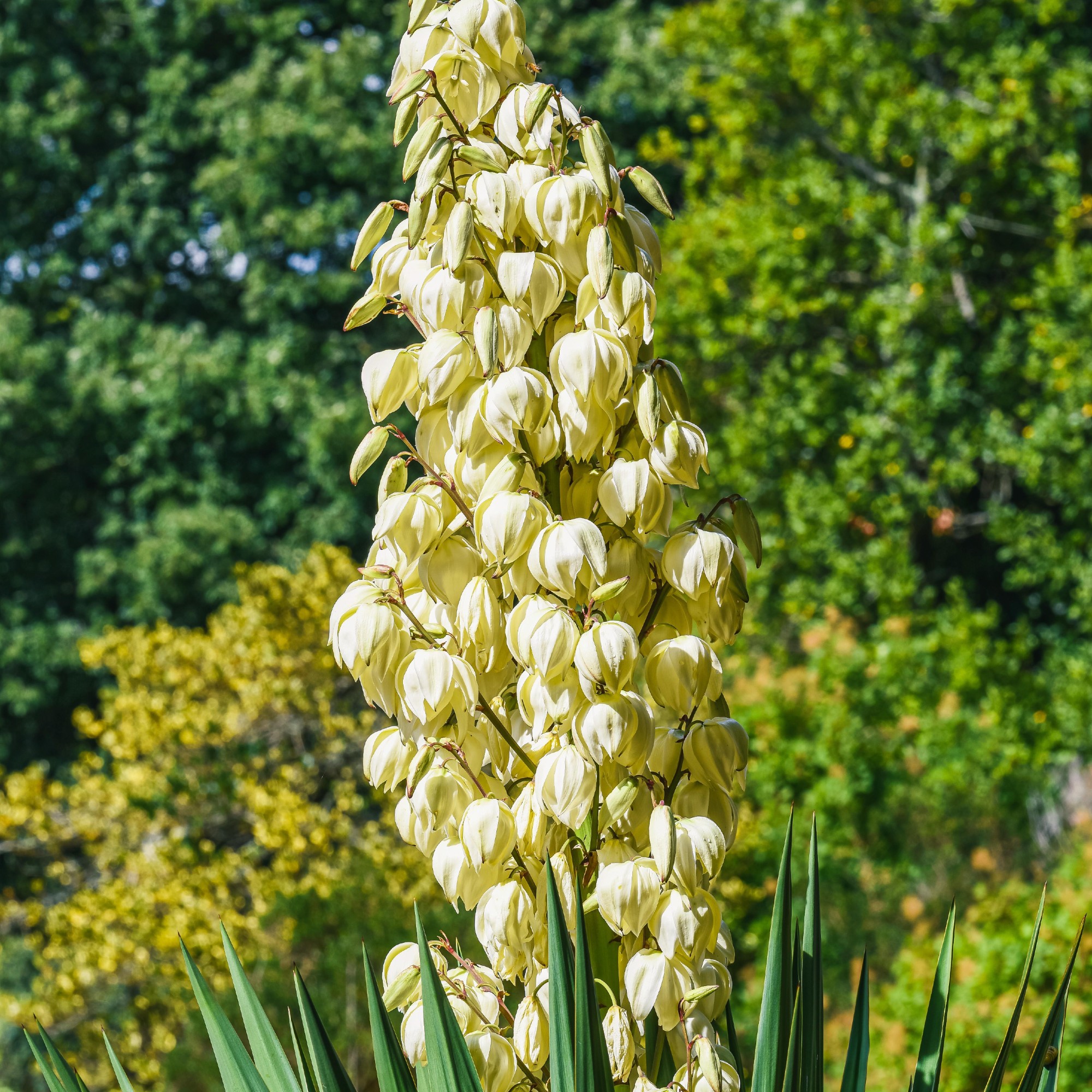
If you're looking to add new plants to your garden but want to keep it low maintenance, you might want to consider learning how to grow yucca plants.
Outdoor varieties of Yucca are perfect for drought-tolerant garden ideas – they'll put up with the most trying conditions, thriving in dry soils and surviving on little water. That's why they're one of the best drought-tolerant plants to add to your summer garden.
'Yuccas are perennial evergreen plants in the form of large shrubs or even trees,' says Kelly Dyer, Patch's plant doctor. 'This means they stay green throughout the year – one of the things that makes them an excellent garden plant.
'They have thick, strappy, pointy leaves with great architectural form, and when the conditions are right in the summer, they put out tall flower spikes heavy with cream bell-shaped flowers.'
We've gathered advice from garden experts to help you figure out how to grow yucca plants successfully.
What you'll need
- A yucca plant
- Gardening gloves like the Spear & Jackson Kew Gardens Collection High Performance Patterned Gloves from Amazon
- A shovel like the Magnusson Wooden Pointed Straight Handle Shovel from B&Q
- Horticultural grit like Suburban Stone Horticultural Grit from Wickes
- A controlled-release fertiliser like Miracle-Gro All Purpose Continuous Release Plant Food from Amazon
Where to buy yucca plants
First, you'll need to decide which yucca plant to buy. 'The yuccas we grow in the UK are the hardy, more drought-tolerant types,' says Kelly from Patch. 'Yucca gloriosa, Yucca flacida and Yucca filamentosa are useful in everything from city container gardens to coastal gardens ideas.'
Here are some of our favourites:
Step-by-step guide
1. Planting
Before you plant your yucca, you'll need to consider where it will grow best. As this plant hails from the sunniest, driest parts of the world, try to mimic those conditions as closely as you can.
'All varieties like sunny spots and free-draining soils,' says Ted Bromley-Hall, gardening expert at IBRAN, working with tombola.
The great thing about yuccas is that they can tolerate even the poorest soils, filling in the gaps that other plants can't stand. If you have heavier clay soil, though, you can still make it work.
'If growing yuccas outdoors on heavier clay soils, dig loads of organic matter and grit into the planting hole,' advises Kelly from Patch Plants.
Make sure the planting hole is large enough to accommodate all of the roots and lower the yucca into the hole so it maintains the planting level it had in its pot. Then, backfill and water the plant into its new location.

2. Feeding and watering
Growing Yucca is relatively straightforward, and you won't have to worry about underwatering the plants.
'Outdoor yucca plants in the ground often do not require a lot of care, and are unlikely to need watering once they are established,' says Graham Smith MClhort, national sales manager at LBS Horticulture. 'The plant can benefit from a controlled release fertiliser in the spring.'
Container-grown yuccas will need a little more watering throughout the growing season, which spans April to September, but scale it right back during the winter. Make sure the containers have good drainage to avoid making one of many common container garden mistakes.

3. Pruning
Knowing how to grow yucca plants is one thing, but you'll also need to give them some light TLC to keep them in good shape. Pruning isn't a necessity, but you can do some light trimming in the spring.
'Aim to remove any lower leaves of the plant as they turn brown, taking care to avoid injury from the spikes at the tips,' advises Graham from LBS Horticulture. 'When the flowers have died, cut the flowering stem down to the base where it joins onto the main part of the plant.'

4. Potential pests and diseases
Though yuccas are easy to care for, there are still a few pests that can't resist the plants. 'Grown outdoors, the most likely pests you’ll encounter on your yucca plants are aphids on the flowers and slugs and snails on the leaves,' says Kelly from Patch Plants.
Luckily, there are plenty of options if you're wondering how to get rid of slugs naturally. Have a browse through the Ideal Home team's tried-and-tested hacks if you're wondering what's best to keep slugs away.
It's also important to watch out for signs of disease. 'Their leaves are susceptible to fungal infections which can leave them brown and patchy,' adds Kelly.
FAQs
Can you grow yuccas from cuttings?
'You can grow yuccas from healthy stem cuttings,' says Ted Bromley-Hall. 'You'll need rather long 20-25cm cuttings. As with most softwood cuttings, place these cuttings in coarse, free-draining rooting compost and cover with a cloche or propagator and maintain a bottom-heater at around 18ºC. The yucca cutting will quickly develop a rhizome which provides new growth.'
Is yucca easy to grow?
'Yes – yucca is great for beginners, as it can tolerate neglect and live for a long time,' says Graham from LBS Horticulture. 'Yucca plants are drought-tolerant, as they store water at their base. However, the plant can be slow growing, and may take a few years to reach its full size.'
So, now you know how to grow yucca, you can add it to your collection of drought-tolerant plants for low-maintenance gardening.







